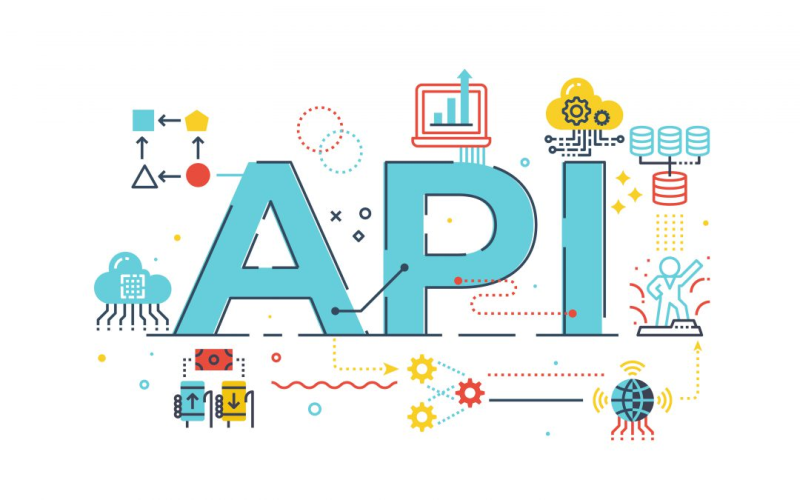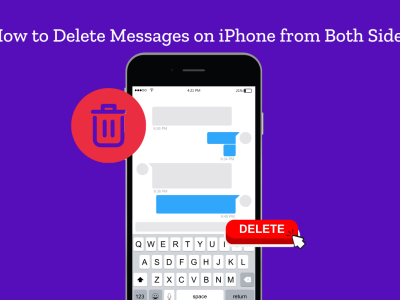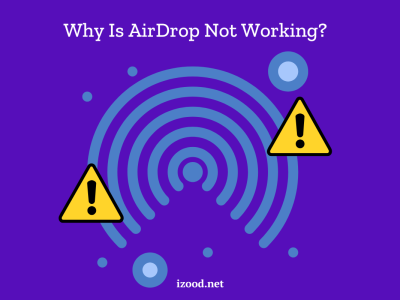APIs are becoming a more important part of the technological world. The purpose is to simplify communication between a program and its users. The idea is to establish standards for communicating with these programs so that programmers don’t have to worry about coming up with new ways of talking to their applications every time they build one. There are many different aspects to an API, which will be discussed in detail in this article.
-
HubSpot API
-
Yahoo Search Marketing API
-
Common Crawl
-
Google APIs
-
WordPress APIs
-
Sejda PDF API
-
Telegram API
-
Hunter API
What is an API?
An API is an interface that allows two pieces of software to communicate with each other. It is a set of rules that define how data can be exchanged between the two applications. An API can be used to access data or functionality from another application.
For example, when you use a mobile app to book a taxi, the app will send a request to the taxi company’s API. The API will then process the request and return a response. The response will include information such as the price of the journey and the estimated time of arrival.
You can also read: Top 8 Virtual Reality (VR) apps
An API can also be used to allow two applications to communicate with each other in real-time. For example, if you are using a chat application, messages will be sent through an API between you and the person you are chatting with.
API stands for “Application Programming Interface”. It is a set of rules that developers follow when building applications. By following these rules, different pieces of software can easily interact with each other.

What does an API do?
API stands for “Application Programming Interface”. An API is a set of rules and specifications that software programs can follow to communicate with each other. It essentially acts as a middleman between different software platforms, allowing them to interact and share data with each other.
For example, when you use a mobile app to book a hotel room, the app likely uses an API to communicate with the hotel’s booking system. The API allows the two systems to talk to each other and exchange information (such as your name, credit card number, and dates of stay). Without an API, this would not be possible.
Here are The 8 Best Marketing APIs
1. HubSpot API
The HubSpot API is a set of software modules that allow developers to extend HubSpot’s functionality by adding advanced features to already powerful marketing software. Developers can create custom solutions specifically tailored to a certain business, giving matching buyers and service providers the tools they need.
Pros:
- Easy to use
- Well-documented
- Integrates with other tools
- Customizable
- Powerful
Cons:
- You need a HubSpot account to use it
- Difficult to troubleshoot errors
- Doesn’t have all the features of the HubSpot software itself
2. Yahoo Search Marketing API
Yahoo Search Marketing API allows you to access Yahoo marketing data that you can use to manage your marketing campaigns. With this well-documented solution, you can tailor your applications to display only the data you need. Use the Yahoo Search Marketing API to gather a dataset for your next research paper or thesis.
Pros:
- Access to a large amount of marketing data
- Well-documented API
- Tailorable applications
- Ability to manage campaigns
- Detailed reports
Cons:
- Limited to marketing data from Yahoo
- Requires some technical expertise to set up and use
- Reports can be difficult to interpret
3. Common Crawl
Common Crawl is a service that assists in the exploration and acquisition of data. You can use it to find new insights and uncover actionable meaning, no matter what your business or needs are. Common Crawl can provide you with an API for any type of data you require, including video, social media, scientific research, webpages and more.
Pros:
- Can access internet data anonymously
- Makes large amounts of data available for analysis and interpretation
- Easily accessible by anyone
- Repository is constantly updated
- Service is free to use
Cons:
- Some data may be inaccurate or out-of-date
- May not have all the data you need
- Not as fast as some other crawling tools
4. Google APIs
Google APIs is the easiest way to work with Google products. When you want to use an API, you need to know how it works, what it returns and what data structure it expects. Luckily Google offers many helpful resources so that your project will be as successful as possible.
Pros:
- Well-documented
- Wide range of integrations available
- Can be used for free (with some limitations)
- Easy to use
- Customer support for its APIs
Cons:
- Some Google APIs have been deprecated
- Can be rate-limited
- Access requires a paid subscription
5. WordPress APIs
WordPress APIs has something for everyone. Developers can use the available APIs to add features and functionality to their plugins and themes. Plugin users will benefit from all the new features as they are created. Whether you want to extend WordPress, or just use it better, you’re in the right place!
Pros:
- Well-organized and easy to use
- Great way to extend the functionality of WordPress
- Constantly being updated and improved
- Well documented, making it easy for developers to find what they need
- Great way to interact with the WordPress community
Cons:
- Can be overwhelming for newcomers to WordPress
- Documentation can be difficult to navigate
- Some of the APIs are still in beta, which can lead to instability
6. Sejda PDF API
If you’re looking for an API integration to streamline your document management process, Sejda PDF API is the perfect solution for you! We provide robust tools that make it not only easy but also efficient to share and sign PDF forms with your customers or vendors. You don’t have to worry about them having any trouble opening and filling out your documents as they can easily copy your templates.
Pros:
- Ease of website integration
- Ability to fill out PDF forms online
- Streamlined communication with others
- Automatic sharing of signed documents or PDF forms
- Easy copying of PDF templates
Cons:
- Limited customization options
- Could be more user-friendly
- Some features require a paid subscription
7. Telegram API
Telegram API is a tool for developers. It lets you build your own version of Telegram with full customization of the design. The telegram API allows you to use bot and other features like Group chat, broadcasting messages, etc.
Pros:
- Fully open source
- Customizable
- Supports multiple languages
- Fast and reliable
- Secure
Cons:
- No video or audio calls
- Some features are still in development
- Requires a phone number to register
8. Hunter API
The Hunter API for email is a flexible and reliable service for verifying or retrieving email addresses, which is needed in cases when the information about the recipient isn’t available publicly. The API has a broad range of applications for companies and individuals, who can use it to verify contacts on mailing lists or to find new leads.
Pros:
- Easy to use
- Accurate results
- Can verify email addresses
- Helps you find email addresses of professionals and companies
- No need for public contact information
Cons:
- Limited to email addresses only
- Not free to use
- Returns limited information
Why would I need to use an API?
There are many reasons why you would need to use an API. For example, if you are developing a web application that needs to access data from a database, you would need to use an API to query the database and retrieve the data. Similarly, if you are developing a mobile app that needs to access data from a web service, you would need to use an API to call the web service and retrieve the data.
In short, if you need to exchange data between two or more applications, you will need to use an API.
Conclusion
An API is a set of programming instructions that allow software to interact with other software. In other words, it allows different applications to talk to each other and share data. APIs are used by developers to create integrations between different applications. For example, if you wanted to automatically post your Instagram photos on your Facebook profile, you would need to use an API.

![How to Pause Location on Find My iPhone Without Them Knowing? [2024] 17 how to pause location on find my iphone](https://izood.net/wp-content/uploads/2024/10/How-to-Pause-Location-on-Find-My-iPhone-Without-Them-Knowing-400x300.png)


![How To Inspect Element on iPhone [4 Methods] 20 how to inspect element on iphone](https://izood.net/wp-content/uploads/2024/10/how-to-inspect-element-on-iphone-3-400x300.png)


